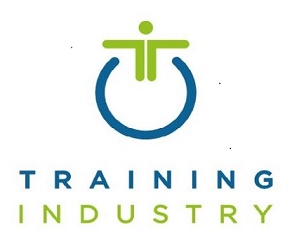Use the word “accountability,” and employees run for cover, expecting perhaps public humiliation or termination. Even managers shy away from the word and struggle with what it means. Still, they ask for accountability training, because they know it’s the only way to get everything done.
Is this apprehension about accountability really necessary? Let’s take another look.
Often, when managers request training in accountability, it’s because they have been frustrated with employee results. Accountability is about giving employees the tools to meet expectations when delegating to them by letting them know exactly what the manager wants. In other words, accountability sets people up for success. Since meeting expectations is a powerful, positive outcome, I like to call it “how we will know when to celebrate.”
Training managers in delegation and accountability includes emphasizing the clarity of outcomes and a mindset shift from being sternly demanding to acknowledging accomplishments. This framing of the issue is inspiring and inviting. It’s not asking them to be the bad cop; it’s asking them to be clear. And the root cause of many leadership issues is clarity.
Training that brings that sense of dignity and responsibility into the notion of accountability is more inviting and, therefore, more likely to stick. If employees know what their managers expect when they delegate a project, and why and when they expect it, then know they are going to get an “A.” That’s cause for celebration – a delegation celebration.
Managers’ reluctance to delegate is well-intended; they believe they can do it better. The reluctance is meant to provide a quality result and take responsibility. This core commitment needs to be understood in order to design the delegation training in a way that will overcome that resistance. It’s great that managers feel committed, but holding on to projects and knowledge is dependable and reliable, yet limiting. Managers who stay limited in this way may end up blocking their own opportunities for advancement, and their staff will not be growing in all the ways they could be, so they may get restless and resign. Turnover is expensive. If managers really can “do it better,” then they need training not only in delegation and accountability but also in how to train their staff on processes.
Training managers to delegate includes:
- Meeting them where they are (possibly resistant to delegating)
- Helping them learn to be clear on outcomes
- Regarding accountability as a motivating (not punitive) force
- Teaching them basic training skills so they can share their expertise and delegate more
- Showing them that effective delegation frees them up for more value-added work and, possibly, a promotion
Here six steps for managers to take for clear delegation that produces desired results:
- Specify the outcome: What does it look like? Confirm that employees have understood by having them repeat it back to you.
- Identify the due date: When, exactly, do you need it?
- Name the person who can help if obstacles arise – in other words, if the person whom you are delegating to gets stuck.
- Share the context: How does this project fit in, and why is it important?
- Establish a clear, attainable milestones: Meet part of the way through the project to confirm or redirect the progress.
- Review the final output days before it is due to ensure success and revise if necessary.
Delegation training for managers needs to include clear tips for holding people accountable. When the results meet expectations, managers and employees alike will have cause to celebrate.
Previously Posted on TrainingIndustry.com:
https://trainingindustry.com/blog/leadership/helping-your-managers-celebrate-the-power-of-delegation-and-accountability/

